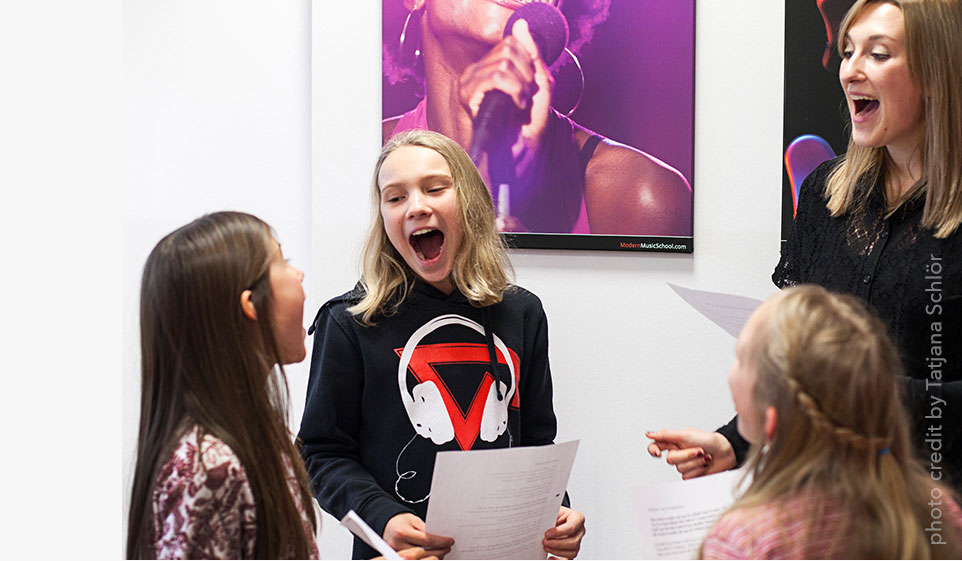How good do you want to be?
Latest Posts • June 3, 2019

Do you ever find that you’re not progressing on your instrument as fast as you were hoping to? You’re still not part of a band although “playing in front of a large audience” is at the top of your bucket list? We might have a solution for you.
First of all, please know that it happens to all of us. We set a goal, start a project or pick up a new hobby and it just doesn’t work out as planned. Changing our behaviour is harder than we think and our environment is full of triggers: people and situations that tempt us to postpone or abandon our plans.
In his book “Triggers – Creating Behavior That Lasts – Becoming the Person You Want to Be,” Marshal Goldsmith, bestselling author and one of the world’s foremost executive coaches, writes:
“We are superior planners and inferior doers. We make plans, set goals and fail to achieve them.”
What he’s saying is that whenever we make plans, we should be aware that there’s a planner inside of us, who is motivated and really wants the change. And then there’s a doer who has to execute on it. The planner is great at handing the job over to the doer. The doer, however, is often not so great at actually getting it done.
In order to succeed, Goldsmith states, we need structure in our lives and offers a simple solution in the form of “active” questions you ask yourself at the end of each day.
All active questions should start with “Did I do my best today to…”
Write down the behaviours that are most important to you. This could be behaviours that help you live a fulfilled life or questions related to your instrument. Or both.
At Modern Music School, we’re convinced that you can make progress without having to practice a lot at home. But, of course, every skill requires practice and the more you practice the better you become (read about perfect practice here.)
So if it is your goal to practice more your active questions could be:
- Did I do my best to practice?
Did I do my best to be fully engaged?
Did I do my best to learn something new?
Did I do my best to have fun?
Did I do my best to celebrate my progress?
According to Goldsmith, for most people, these questions fall into the following categories: health, family, relationships, money, enlightenment and discipline.
So other questions you might want to ask yourself are:
- Did I do my best to have a healthy diet?
Did I do my best to exercise?
Did I do my best to say or do something nice to my mother / father / friends?
Nutze diese Fragen, um selbst zu bewerten, ob du deinen Zielen näher gekommen bist. Ein einfaches “nein”, “teilweise” oder “ja” reicht aus, um deine Ergebnisse über die Zeit festzuhalten.
Die Frage „Habe ich heute mein Bestes gegeben?“ konzentriert sich auf das, was wir tatsächlich kontrollieren können: auf uns selbst!
Das Schöne an aktiven Fragen ist, dass sie unseren Aufwand messen, nicht die Ergebnisse.
Es gibt einen Unterschied zwischen Erreichen und Versuchen. Wir können nicht immer das gewünschte Ergebnis erreichen, aber wir können es immer versuchen.
Wenn du diese Fragen ehrlich beantwortest, konzentrierst du dich zum Beispiel auf dein Ziel, ein super Musiker zu sein. Wenn die Frage “Habe ich mein Bestes getan, um etwas Neues zu lernen?” dann 2 Wochen auf deiner Liste steht und du ihr täglich ein “teilweise” gibst, ist das vielleicht ein Zeichen dafür, dass “Fortschritt machen” nicht der wirkliche Grund ist, warum du Musik machst – vielleicht spielst du gerne Musik, weil es Spaß macht und du so richtig gut dabei abschalten kannst.
Da unsere Umgebung den ganzen Tag über ihren Einfluss ausübt, können wir unsere Ziele leicht aus den Augen verlieren. Wir werden müde, haben keine Willenskraft mehr und fangen an, Entschuldigen zu finden.
Aktive Fragen geben uns nicht nur mehr Klarheit über unsere Ziele, sondern werden auch selbst zu „Triggern”, zu bewusst gestalteten Auslösern, die uns in Richtung eines produktiven und vorteilhaften Verhalten bewegen.
Probiere es aus!




Leave A Comment